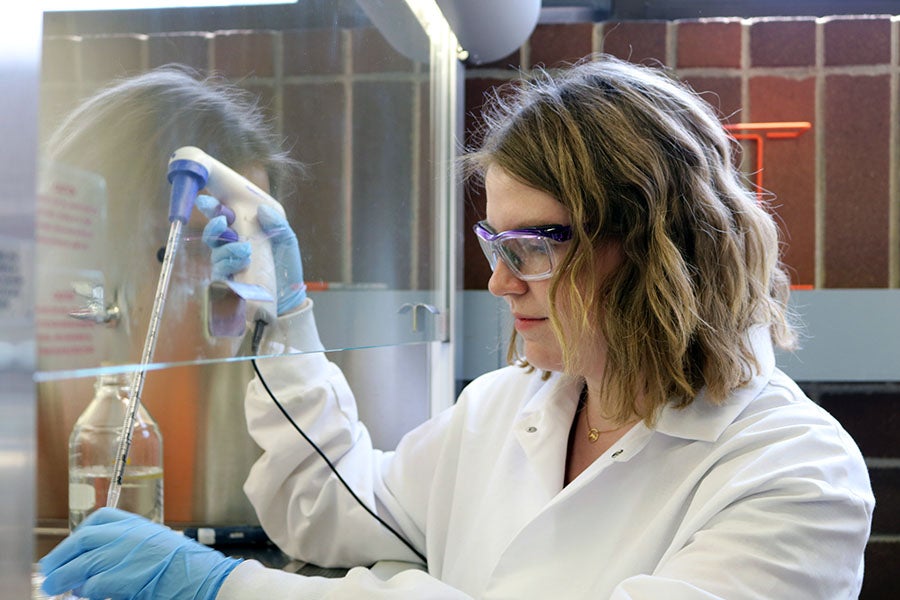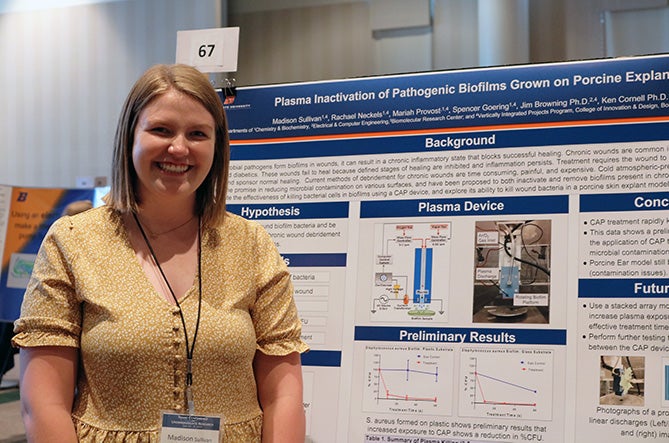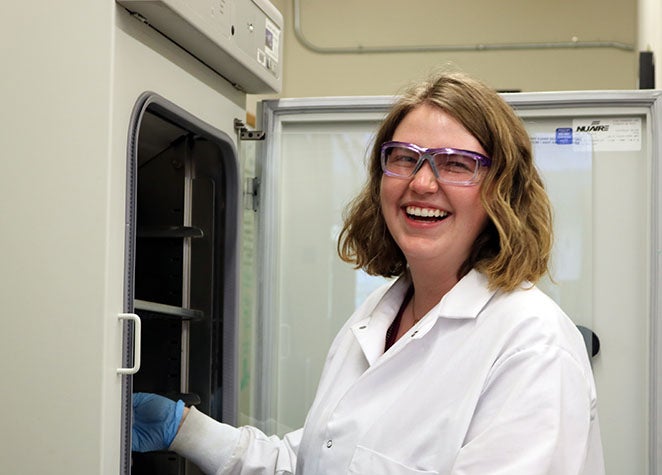
One of five 2019 Ralph R. Jones, MD, FACS Pre-Medical Fellowship recipients was Madison Sullivan, pre-medical health science student in the School of Public and Population Health. Sullivan studied in the lab of Ken Cornell, biochemist, associate professor, and associate director of the Biomolecular Research Center within the Department of Chemistry at Boise State.
Sullivan was immersed in a project alongside Cornell known as a Vertically Integrated Project. Sullivan had been working with Cornell prior to the fellowship since Fall of 2018. The project in which Sullivan was tasked with was called “Cold Atmospheric Plasma.” This Vertically Integrated Project was funded by the National Institutes of Health, the United States Department of Agriculture, and NASA, to help solve various problems in these three areas with the use of Plasma. As explained by Cornell, “When people think Plasma they think of the stuff that flows through your blood. The plasma we’re using is an ionized gas.” Cornell’s research experimented with numerous uses of Plasma to hopefully solve problems found in chronic wounds, food processing and manufacturing plants, and space flight.

Sullivan played an instrumental role in the first of three areas, which involved using Plasma as a tool to potentially heal chronic wounds. “Chronic wounds are typically found in populations of the elderly, people with diabetes, people who are bed ridden, or people with substance abuse,” said Cornell. “Chronic wounds are caused by vascular insufficiency. This is where the tissues surrounding a wound can’t receive enough oxygen, causing a persistent wound that often never goes away. When wounds don’t receive oxygen, this causes bacteria and biofilm to grow on and around the area. To cure the wounds, the biofilm needs to be removed. That is where Plasma comes in. Working with other departments on the Boise State campus, we are trying to create a device that would look similar to a pen that could eject Plasma to treat the area surrounding a wound so that it etches away the biofilm in an attempt to fully heal.”
Cornell and Sullivan worked closely with Don Plumlee, chair and associate professor for the Department of Mechanical and Biomedical Engineering; Julia Oxford, professor for the Department of Biological Sciences; and Jim Browning, chair and associate professor for the Department of Electrical and Computer Engineering to create the device. Once created, the device, known as the “Plasma Scalpel,” was tested by Sullivan in the lab on artificial and pig ear wounds to verify that the Plasma killed the bacterial fungi in biofilms surrounding the wound without removing any healthy tissue.

“Throughout this opportunity, I was able to learn many new skills and find a passion for research,” said Sullivan. “During our research, we faced many roadblocks, but finding new ways to work through those roadblocks and find a significant outcome in our research, made it all worth it. I am eternally grateful for the generosity of Ralph Jones’ family and their impact on my academic experience.”
Learn more about the Ralph R. Jones, MD, FACS Pre-Medical Fellowship.
–By Taylor Music